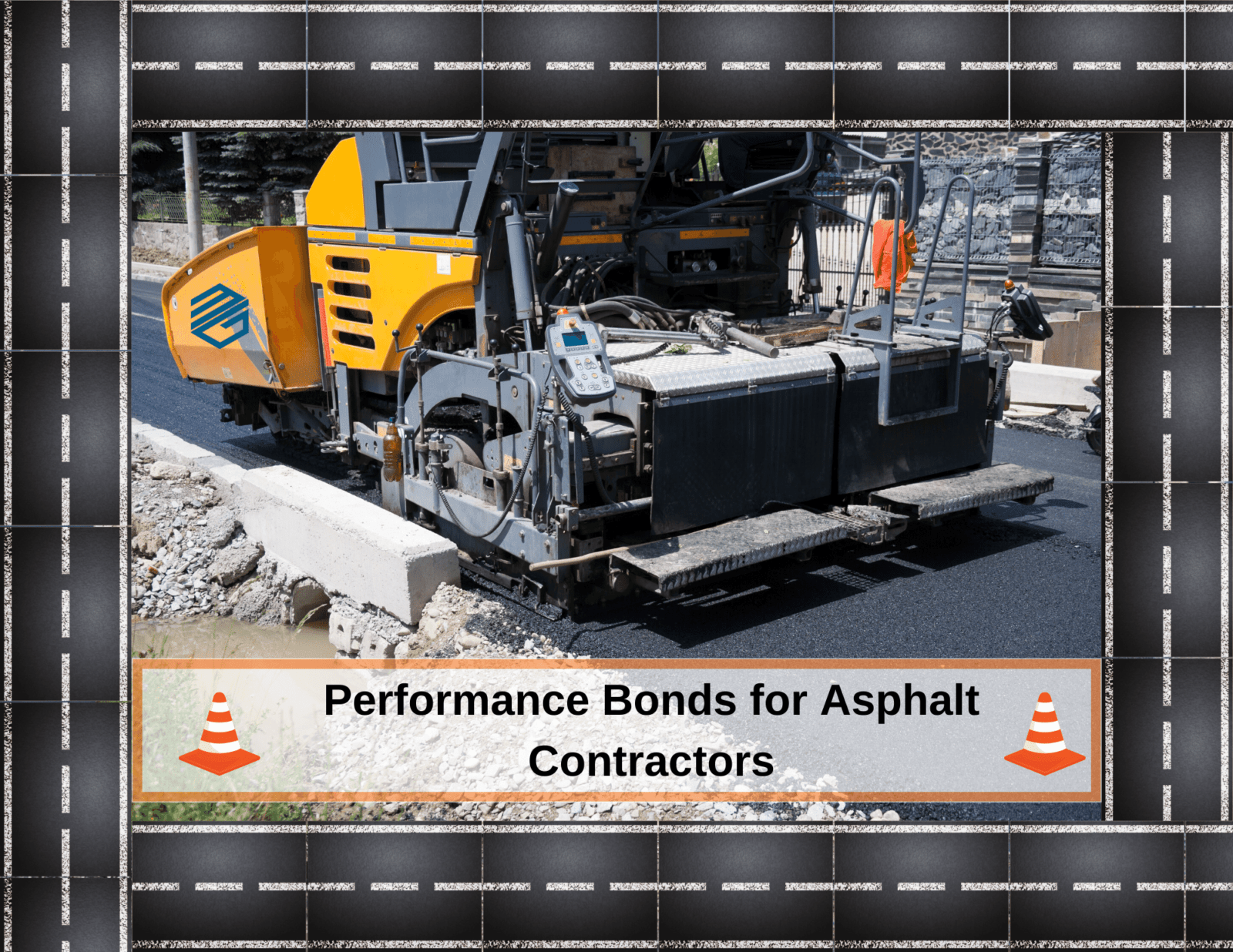Asphalt Pavers can have a significant need for performance bonds. They are considered heavy contractors and the nature of their business presents unique risks and opportunities for surety bond companies. Here are some considerations for providing construction bonds to asphalt contractors.
Asphalt Contractors May Be Light on Working Capital
Most surety bond companies are working capital oriented. They want to make sure contractors have enough short-term liquidity so that they do not have to step in and pay bills for them. This can be challenging for asphalt pavers. Asphalt paving requires a significant investment in equipment. In fact, one piece of equipment can easily cost several hundred thousand dollars. Additionally, tough working conditions means that equipment is constantly depreciating and possibly breaking down. This means money and working capital are constantly reinvested in the paving equipment. Often, this equipment is financed which creates both short term debt and long-term debt. Short term debt reduces working capital. Asphalt contractors need to make sure their surety bond company can support them with even when they are light on working capital. Otherwise, they may want to consider a surety bond company who focuses more on net worth.
Asphalt Contractors May Have Significant Net Worth
Because of the equipment demands, asphalt contractors may have significant net worth in their equipment. Net worth is important to all surety bond companies, but some do value it more than working capital. Additionally, many asphalt contractors have asphalt plants that usually contribute significantly to net worth. Usually, net worth underwriting is opposed to debt, however. Too much debt offsets the benefits of net worth.
Depreciation Adds Up
Depreciation is a non-cash expense. However, it does reduce a company’s profitability. This can be an issue for surety bond companies when an asphalt contractor has so much depreciation that it becomes hard to be profitable. Make sure your equipment fleet matches your needs. If depreciation is keeping a contractor from being profitable, they probably have too much equipment for their sales volume.
Off Balance Sheet Equity
Another area that may boost an asphalt contractor’s surety bond capacity is off balance sheet equity. As we discussed, equipment and property depreciate as it gets older. However, that does not mean the value goes away completely. Property such as asphalt plants, equipment, office space, ect. may have significant equity even after the book value is gone. Surety bond companies usually do not want to give surety bond capacity entirely based on off balance sheet equity, but it should be factored in to help support more surety bond credit.
Asphalt Pavers May be a General Contract or a Subcontractor
Asphalt pavers are often General Contractors on projects. Many states and municipalities bid street and road projects just for asphalt paving. Some asphalt paving contractors focus on these types of projects alone. However, many asphalt pavers also act a subcontractor on a lot of projects. This can present a problem for some surety bond companies as they prefer their accounts to control the project and therefore the money. Asphalt pavers should make sure their surety bond company is comfortable with this subcontractor work or it could lead to problems later.
Bonded and Unbonded Work
Some asphalt contractors only perform public work. Usually, they have to post performance bonds and payment bonds for all these projects under The Miller Act or Little Miller Acts. However, other contractors may have a mix of public and private work. This usually leads to the contractor having jobs that are bonded and projects that are unbonded. This can be a big advantage from a surety bond perspective. An important consideration in providing surety bond credit is a contractor’s backlog. You can read more about that here. Some surety bond companies only count bonded backlog. That means their unbonded work does not reduce their surety bond capacity. This can lead to more work opportunities for an asphalt contractor that does a lot of unbonded work.
Asphalt Paving Contractor Performance Bond Rates
Some asphalt contractors focus solely on asphalt paving. Other do other lines of work as well such as concrete paving. What does this matter? Well from a surety prospective, the risks are very different. If an asphalt project is not performed correctly, it is a relatively simple process to mill it up, recycle the asphalt, and repave the project. Concrete paving presents much more risk. Breaking out concrete and rebar can be expensive, and the problem may not be known for some time. For these reasons, concrete paving is considered “Class A” work while asphalt paving is considered “Class A-1”. You can read more about performance bond rates here. Class A-1 rates are some of the most competitive surety bond rates available. If a contractor is performing both types of paving, some surety bond companies will provide a combined rate. Usually this is less than “A Rates” but more than “A-1” rates. This may or may not be a benefit to the contractor depending on the breakdown of their work, but it should be discussed with your surety bond broker.
Because of the nature of their work, asphalt pavers are ideal accounts for many surety bond companies but their operations are unique and should not be looked at like other contractors. Being with the wrong broker or surety bond company could create unnecessary headaches. Paving contractors should make sure they are with a surety bond market that properly fits their business to get the best surety bond capacity and terms available. Contact MG Surety Bonds anytime or visit our Frequently Asked Questions page about Performance Bonds here.

